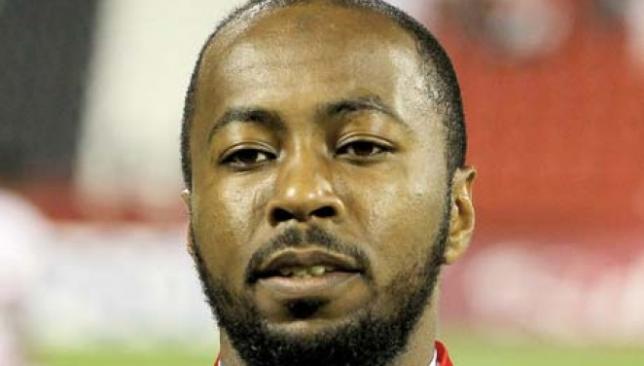
“I hope he will get the chance to play in Europe. I am 100 per cent sure with his qualities that he can do well if he gets the chance to play outside this country,” his coach at Wahda, Austrian Josef Hickersberger said at the time.
Matar did go abroad… but only a few hundred miles away to Doha on a brief loan spell when Qatar’s Al Sadd sought his services for their 2009 Crown Prince Cup quarter-final with Doha rivals Al Ahli.
In that match, he came off the bench with 20 minutes gone and his side down 2-0, a man short and staring defeat in the face.
Matar’s formidable and indefatigable presence saw Al Sadd eventually emerge winners on penalties after the match ended 3-3 at the end of extra time thanks to an assist and a spectacular goal from the Emirati.
His first overseas assignment, left him wanting more. “When you are playing in your own country, you are famous. You are a big star because you have already proven yourself and there is nothing left to prove, but when you play overseas, you have to prove yourself again,” he had said at the time.
There have been offers, but from Wahda’s Abu Dhabi rivals Al Ain and Saudi Arabian giants Al Hilal and Al Ittihad. However, he was bound to the Nahyan Stadium with a long five-year deal that is expected to end in 2014.
Barring that month-long loan spell in the Qatari capital, Matar has been at Wahda since the age of 14.
His first outing came on one of the biggest nights in UAE football, the Abu Dhabi derby against arch rivals Al Jazira, where he scored before going on to score 14 goals in the league, a feat that would win him the Best Emirati Player honours and Wahda a runner-up finish in the league.
The sharp rise in Matar’s stock brought with it a corresponding increase in responsibilities. He was thrust into the spotlight and besides playing for Wahda and the UAE Under-20 and Olympic teams, he had to deal with the added pressure of playing for the national team as well. Such was his class that he remains the only Emirati player to have been a part of three national teams at the same time.
Matar won the Golden Ball at the 2003 FIFA World Youth Championships ahead of Barcelona star and Spain’s World Cup winner Andres Iniesta and Brazil and Villarreal striker Nilmar as the UAE made the quarter-finals, joining the likes of Argentina legend Diego Maradona as winners of the award.
The Golden Ball brought tremendous interest from Europe but Matar stayed put at Wahda and went on to add to two more league titles (2004/05 and 2009/10) to his first which arrived in the 2000/01 season.
Wahda CEO Khalid Awadh said the club will be forever grateful to the 28-year-old, who apart from being the UAE’s best player ever is also a great role model for the next generation of Emiratis.
“Ismail Matar you cannot praise him enough. He is one of the most talented players produced by the UAE and he has given so much to our club and the country,” said Awadh.
“Many people know him as a footballer, but he is an excellent human being as well. He’s a great person, a model person and a very, very good example for youth around the world.”
Matar’s national team coach Srecko Katanec, a former player for Yugoslavia, Slovenia and Sampdoria, feels the same.
Katanec has been forced to field a team devoid of the diminutive striker as he recovers from recent knee surgery but admits the gap is impossible to fill: “When he is out of action there isn’t anyone who can step into his position. He is a dynamic player who is capable of playing in many different positions. He has qualities some of my other players don’t have so when he’s out it’s difficult for us.
“As a player he is very talented, he’s quick and can do whatever is asked of him. He can play anywhere and scores some really good goals. What else do you need as a coach?”